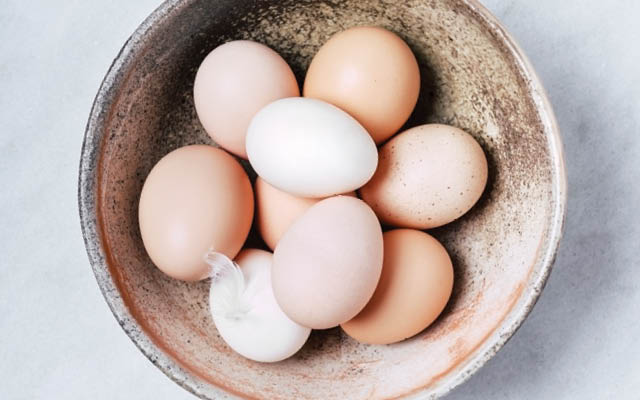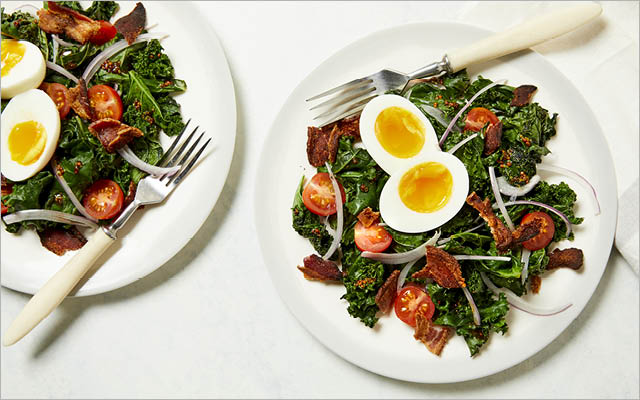Shop and Store
Choose pasture-raised eggs (also called pastured eggs), which means the hens that laid them were able to forage outdoors. Research shows these eggs provide more essential nutrients — including vitamin A, vitamin E, and omega-3 fatty acids — than those produced by caged hens. Pastured eggs will also taste better, and they are typically produced through more sustainable and humane agricultural practices. If possible, pick certified organic eggs (meaning hens ate organic, pesticide-free feed) packed in recyclable or compostable cartons. Keep in your refrigerator for up to a month.
Eat the Yolk
Eggs are a nutritious whole food, containing all nine essential amino acids; vital minerals, such as zinc and phosphorous; and a host of important vitamins. Purveyors of the low-cholesterol gospel may have convinced you to ditch yolks in favor of egg-white omelets, but credible research shows that sugar and refined grains (not the dietary cholesterol that egg yolks contain) are the main drivers of heart disease. So, if you enjoy them, eat your yolks — they deliver most of the egg’s nutrients.
Baste Away
If your ideal egg features perfectly set whites and a runny yolk, consider basting. Melt
1 tablespoon of butter in a small skillet over medium-low heat, then crack the egg into the skillet. Once the whites start to set, tilt the pan toward you so the butter pools at the edge, and use a spoon to pour the hot butter over the egg whites until they’re cooked through, about two to three minutes. If you like your yolk firm rather than runny, you can baste the yolk, too.
This originally appeared as “Eggs” in the May 2020 print issue of Experience Life.




This Post Has 0 Comments